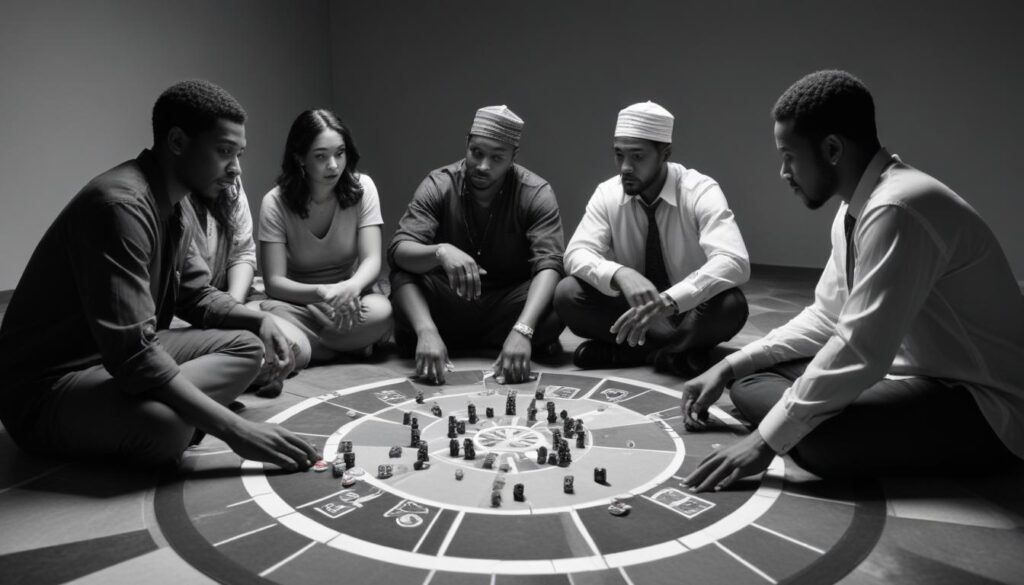Introduction
Intellectual games are games which you can play with you smart or intellectual friends. These games required some intelligence or smart work but mark my words you will enjoy while playing intellectual games. Intellectual games do not require long preparations or complicated props. You can gather with friends and play anywhere: at home in the kitchen, in a cafe at a festive table, on a train, in the country, in the forest near a campfire.
1. Contact
Number of players: minimum three people.
Perhaps one of the most popular intellectual games for a company. The rules are as follows: the leader thinks of a word – a noun in the nominative case, a common noun. And announces the first letter to everyone. The other participants take turns asking questions, trying to guess what was intended.
For example, a player guessed the word “weightlessness”, the first letter is “N”. To the question “Is this an animal?” he should give answer quickly. That is, remember an animal that starts with the letter “N” and formulate the answer as follows: “No, this is not a seal”. The same question should not asked second time. The next player asks: “Is this fresh information about events? Answer is : “No ! No ! This is not news.”
If the host cannot come up with an answer to a participant’s question, and another player at the same time has found the correct answer, he says: “There is contact!”
2. Who am I?
Number of players: from four people.
First, the players agree on a topic. You can take famous people, literary heroes, movie and cartoon characters , or professions. Then each player writes the name of the hero or celebrity or the name of the profession on a sticker. All the papers are put in a pile.
The host is given a headband or a bandage – you can use a scarf, kerchief, or tie. He randomly pulls out a piece of paper, but does not look at what is written on it. The sticker is attached to the head with the bandage.
The host’s task is to guess who he is. To do this, he asks questions. You can only answer “Yes” / “No” / “Ask differently”.
Example:
– I am human?
– No.
– But I am an anthropomorphic hero?
– Yes.
— Do I live in a real world or an imaginary one?
— Ask differently.
— Am I living in a fantasy world?
– Yes.
— Is my skin the same color as humans?
– No.
– She is blue?
– No.
– So I’m not from Avatar . Is she green?
– Yes.
– I am Yoda!
– No!
– Shrek!
Correct! The round is over.
In this game, you don’t have to determine the winners. The best player is not always the one who asks the fewest questions. What’s important here is not the speed, but the process of finding the answer.

3. Keeper of the Secret
Number of players: three or more.
The host guesses an expression, phraseological unit , proverb, or quotation known to all participants . He names the number of words. The players ask the “keeper” any questions. In each answer, he must use a word from the guessed phrase. The answer must fit into one sentence.
If there are five words in a phrase, he is asked five questions. In answer to the first, he must say the first word, to the next – the second, and so on. Prepositions, conjunctions, interjections also count.
For example, the phrase “Measure seven times, cut once” is guessed.
— What did you have for dinner?
— I prepared a dish from seven products: potatoes, meat, onions, carrots, tomatoes, salt and herbs (the first word is called – “seven”).
— Where would you like to go on vacation ?
– Every time I think about a holiday, I think about Australia (the next word is “one”).
And so on. The hosts’ answers can be recorded on a dictaphone. Then the players analyze each one and try to make up a phrase. If there are many people, you can split into two teams. In the end, the one that spent less time searching for answers will win.
4. Favorite letter
Number of players: three or more.
The leader chooses a letter. For example, K. Now he is a character who lives in the world of this letter. The others ask him a variety of questions. He must answer them with words or short phrases that begin only with K. The task of the others is to come up with a question that would be difficult to answer with a word starting with the chosen letter.
Example:
– What is your name?
– Kostya.
– Where you were born?
– Kostroma is my city.
– What do you eat for breakfast?
— Cutlets, potatoes, kiwi.
— Your favorite writer?
– Kipling.
– What do you do for a living?
— A pastry chef.
– Uh-uh… Every one!
The main thing here is not to determine the winner, but to look for unexpected questions and answers to them. Sometimes they add a rule that a player can give no more than two abstract answers – such as “any”, “every”, “the best”, and so on. Otherwise, he gives way to the next one.

